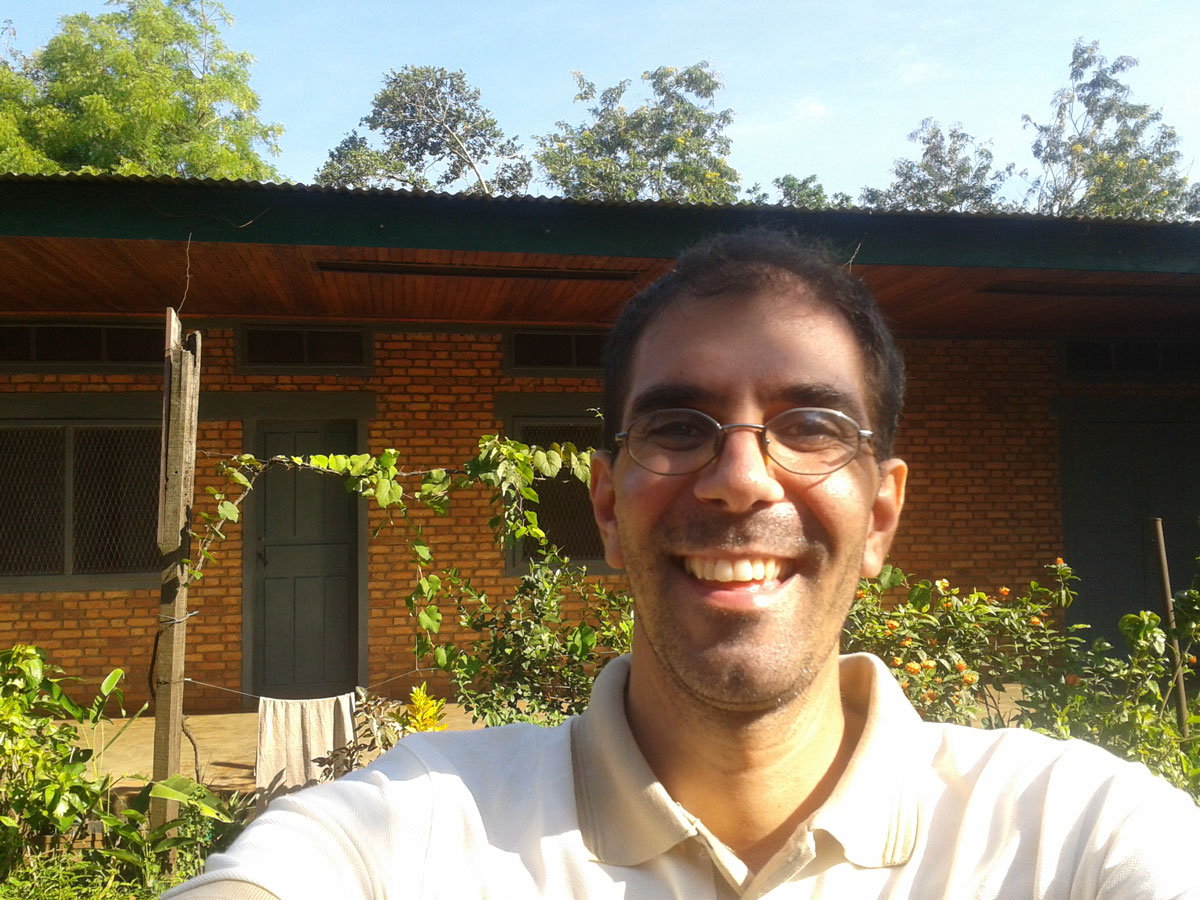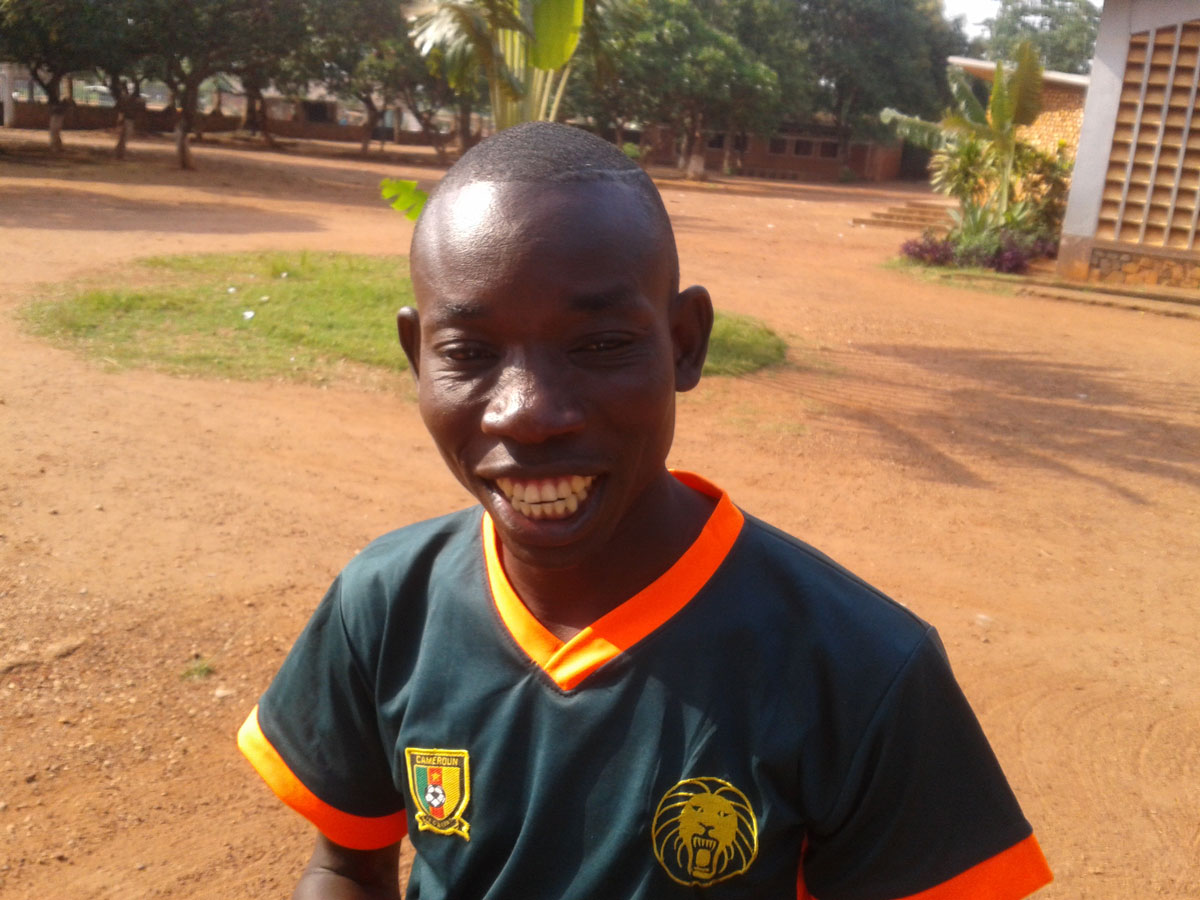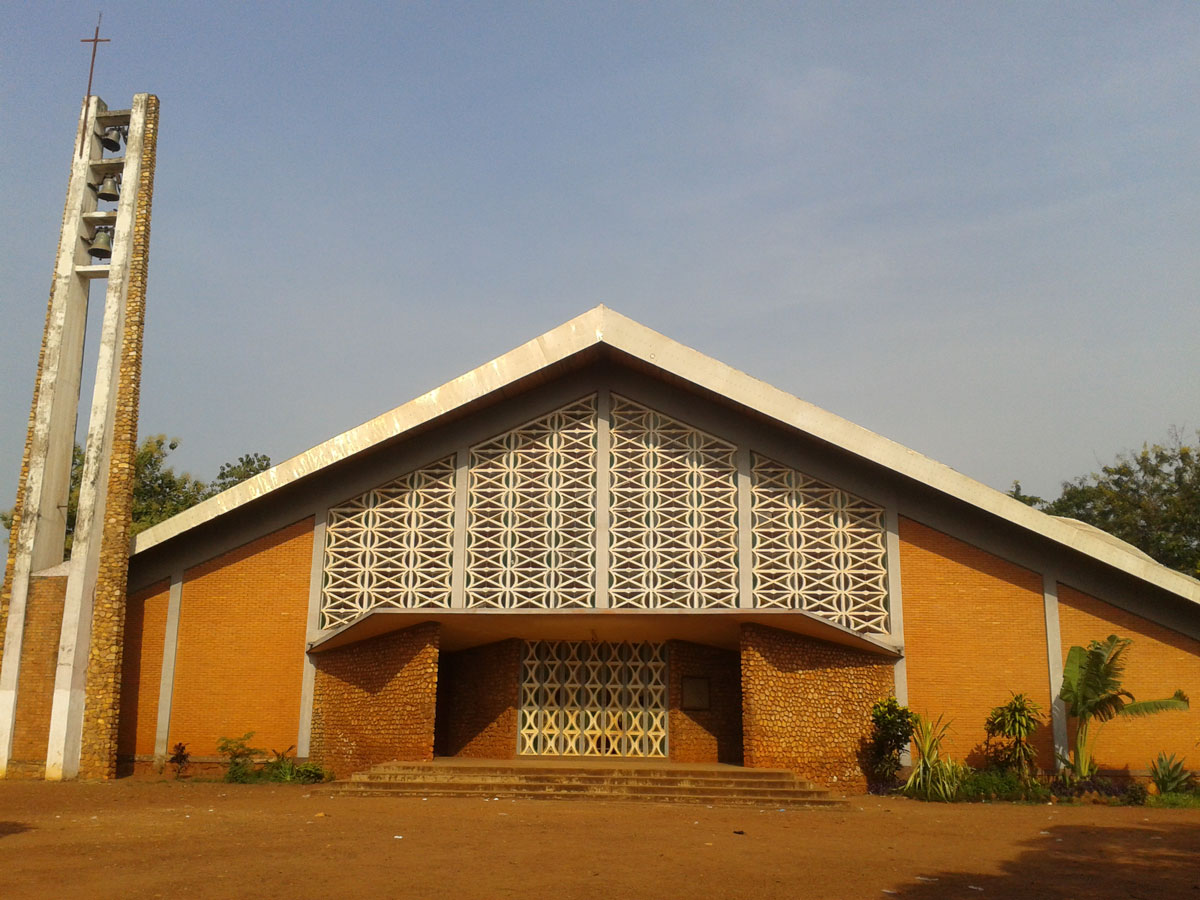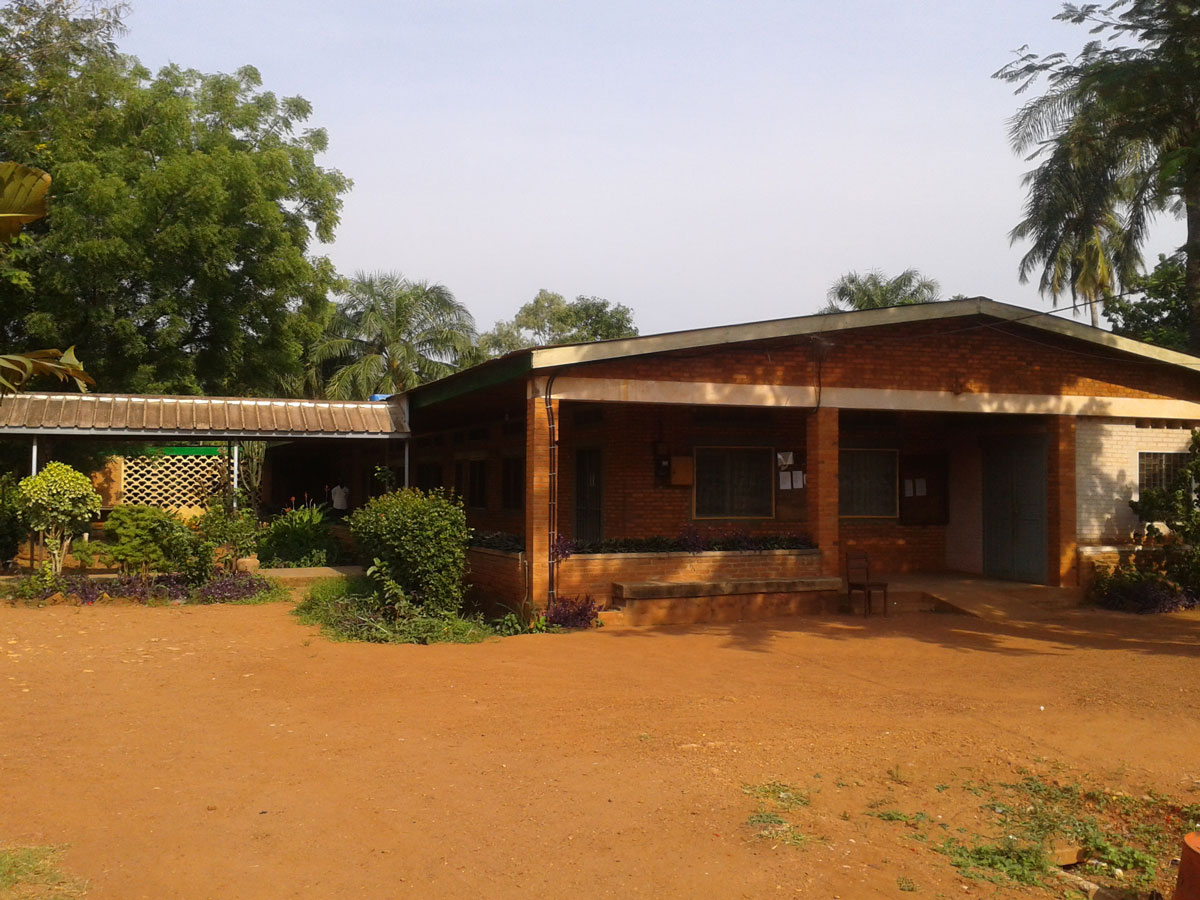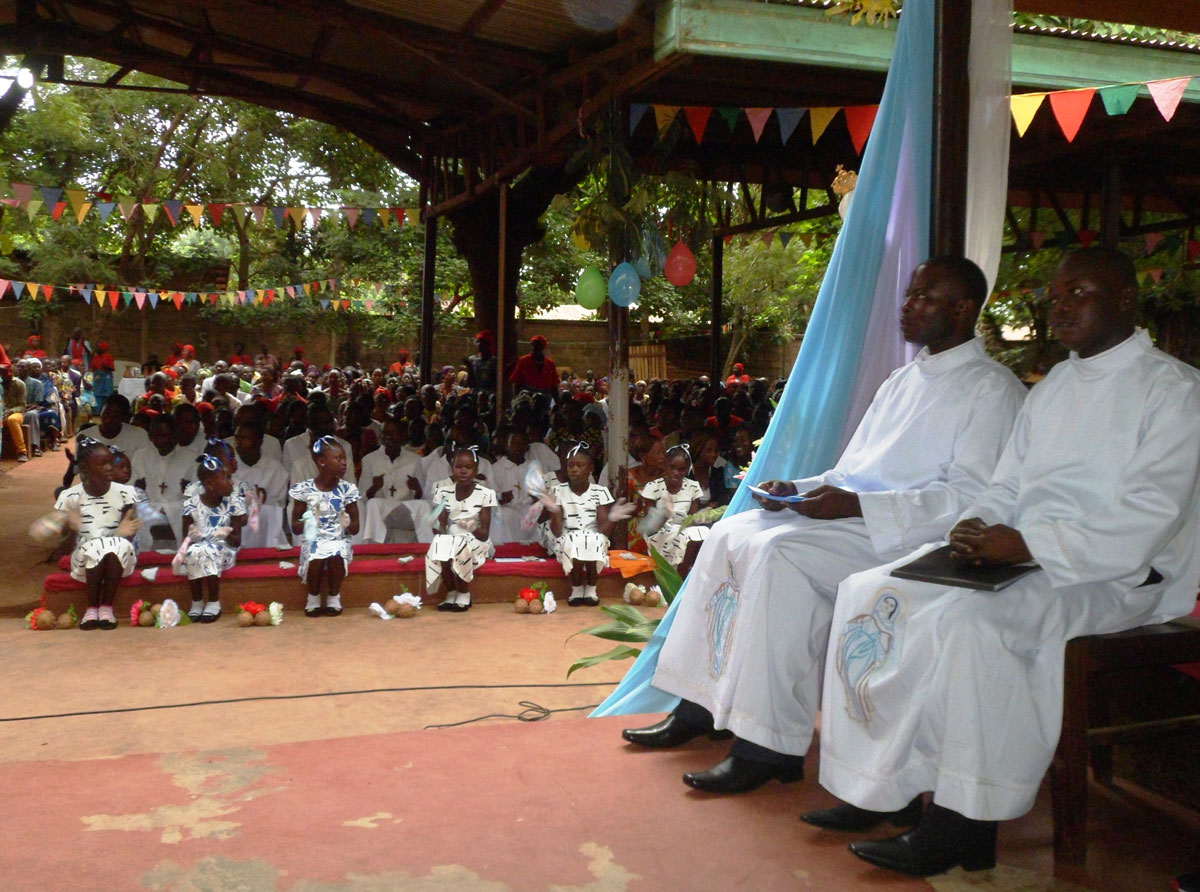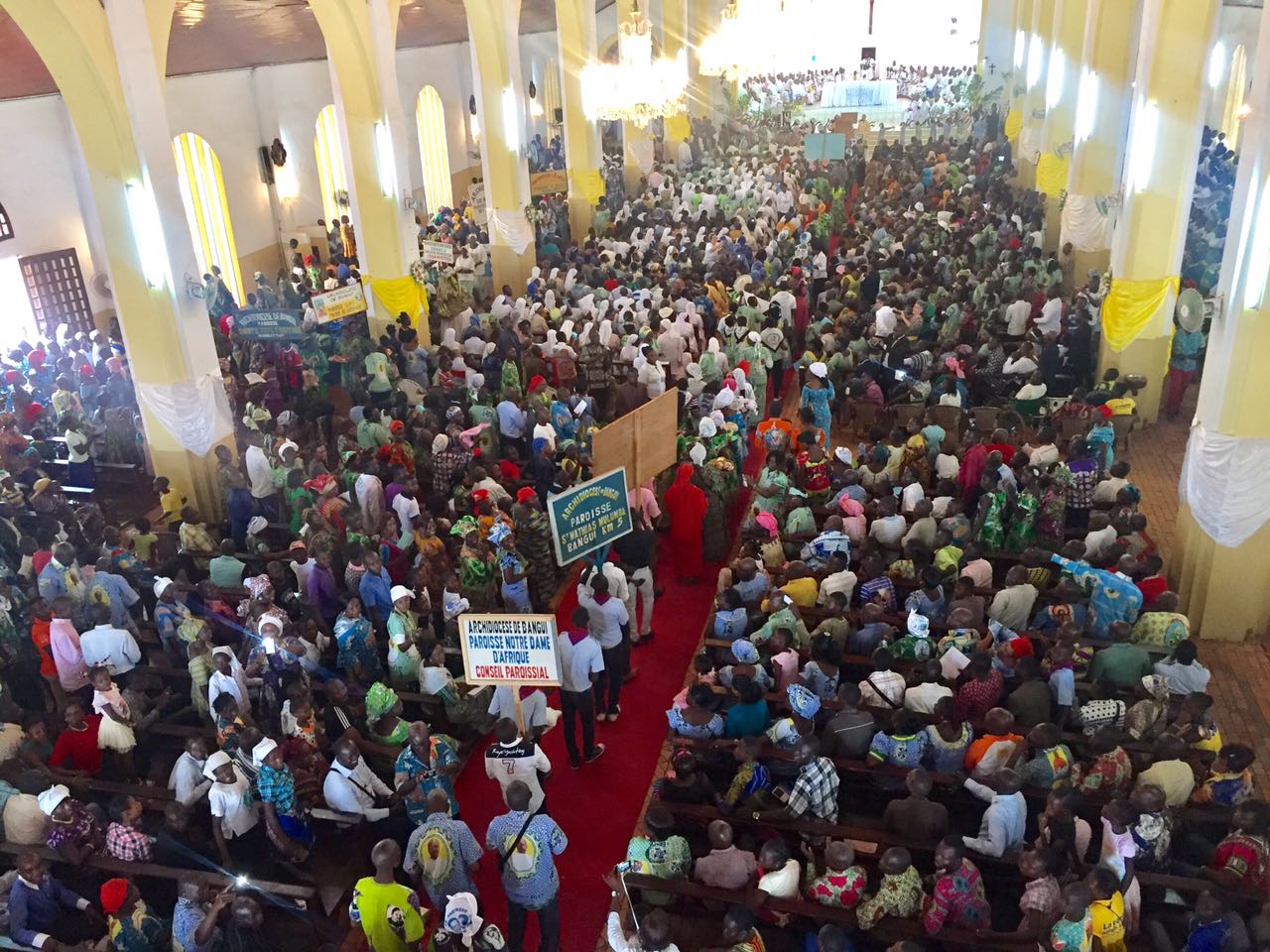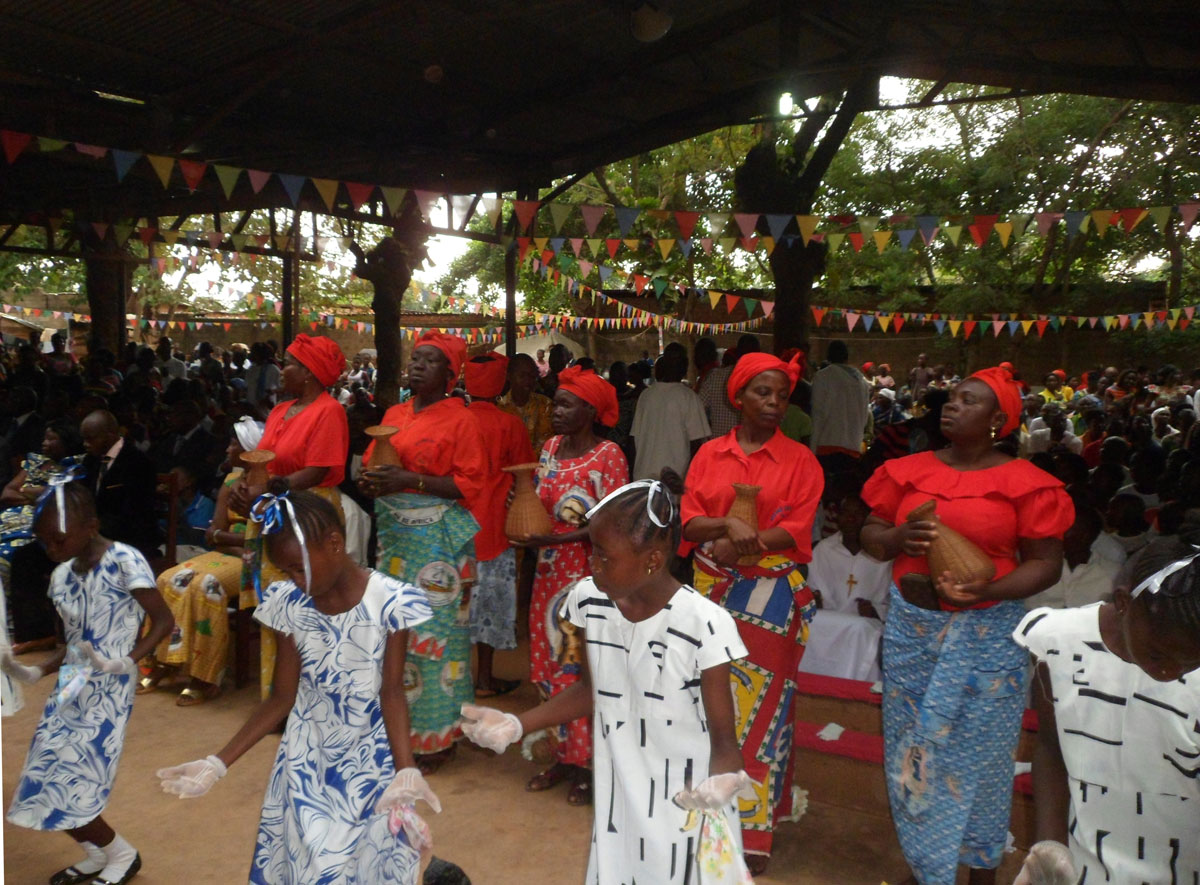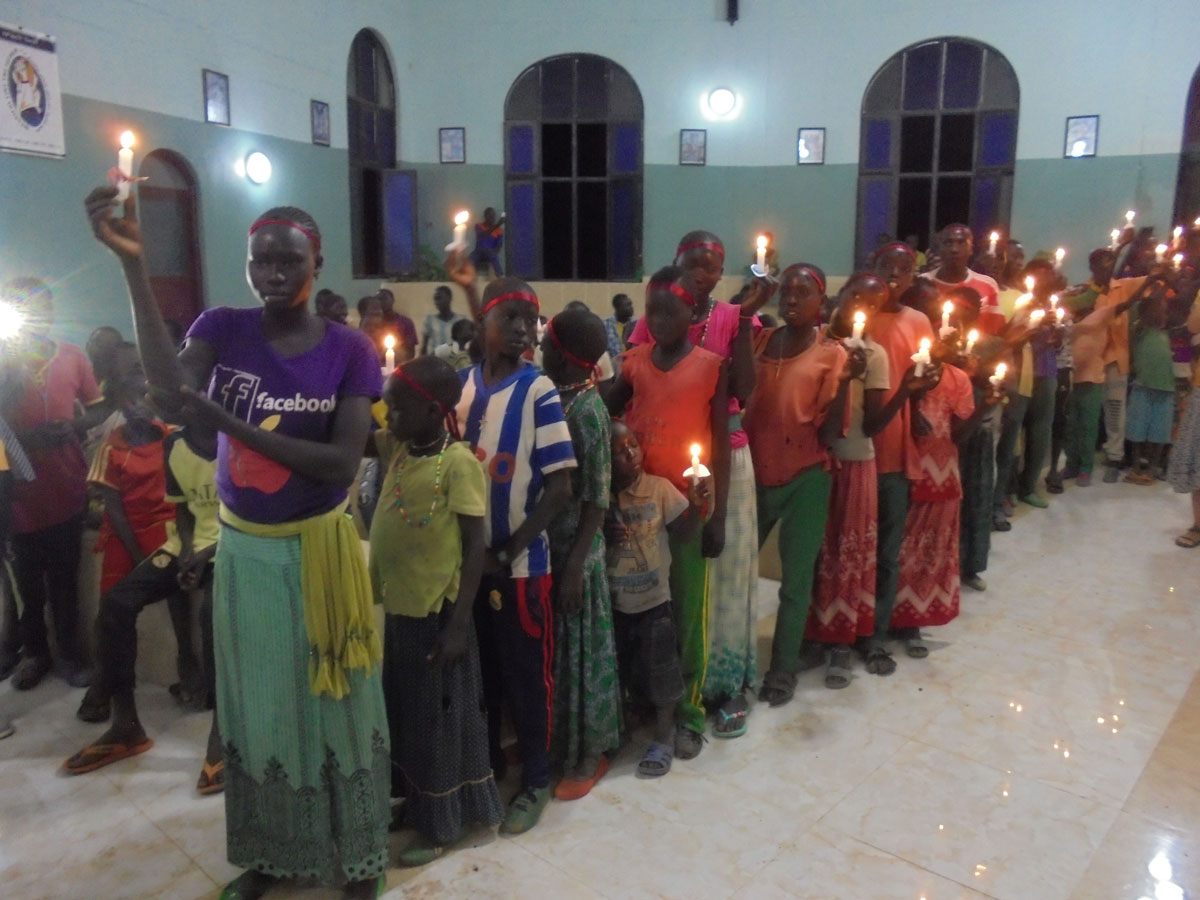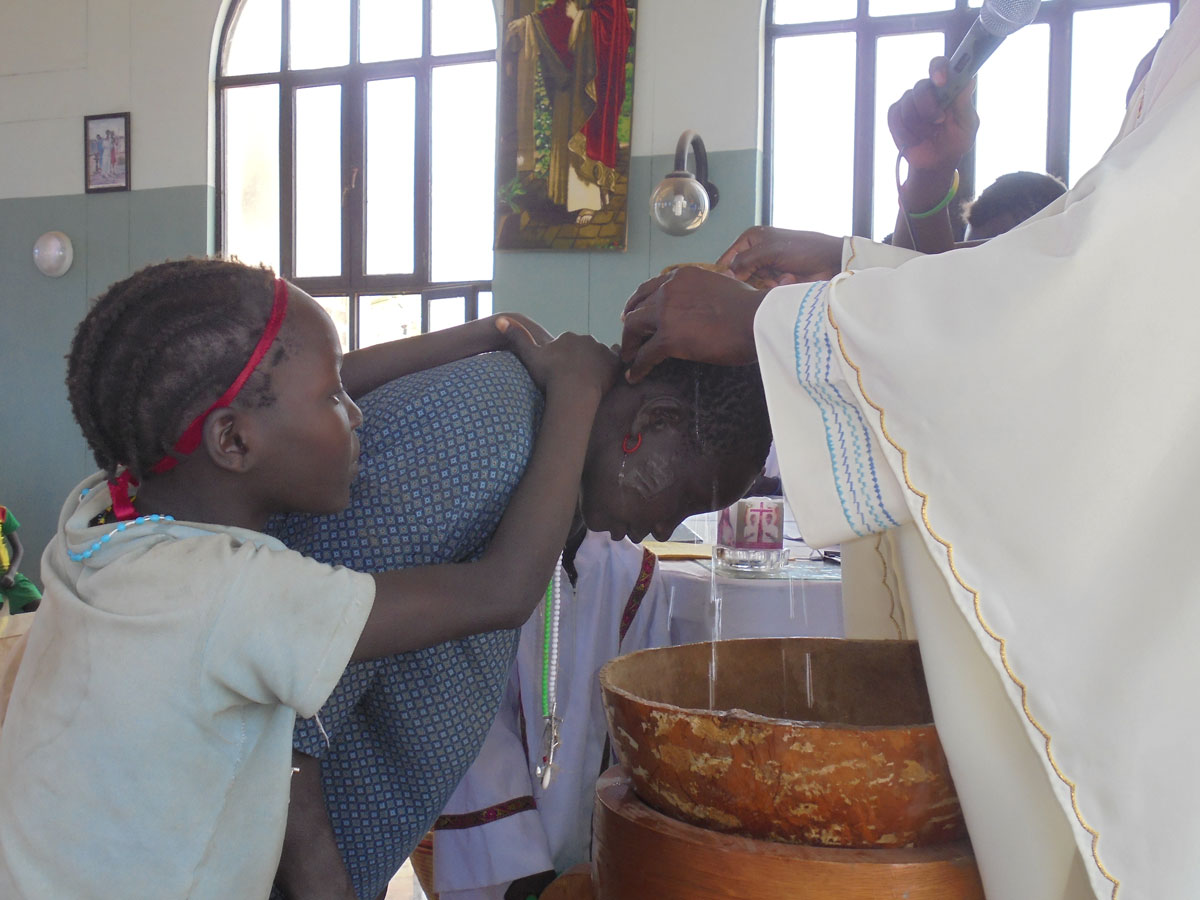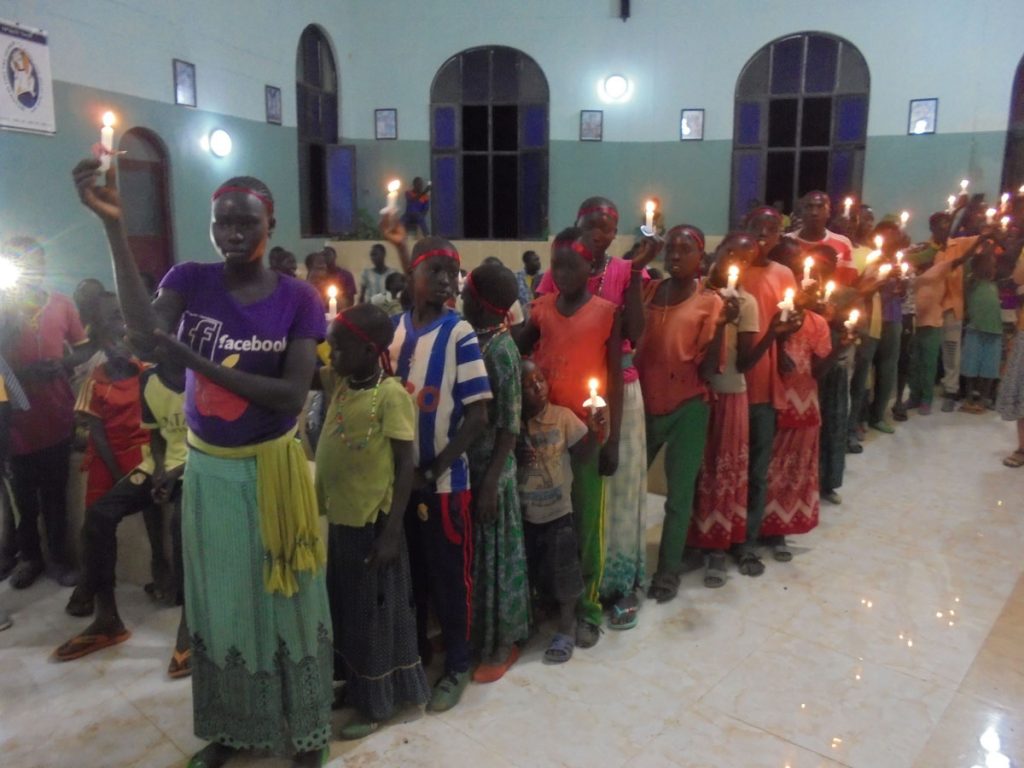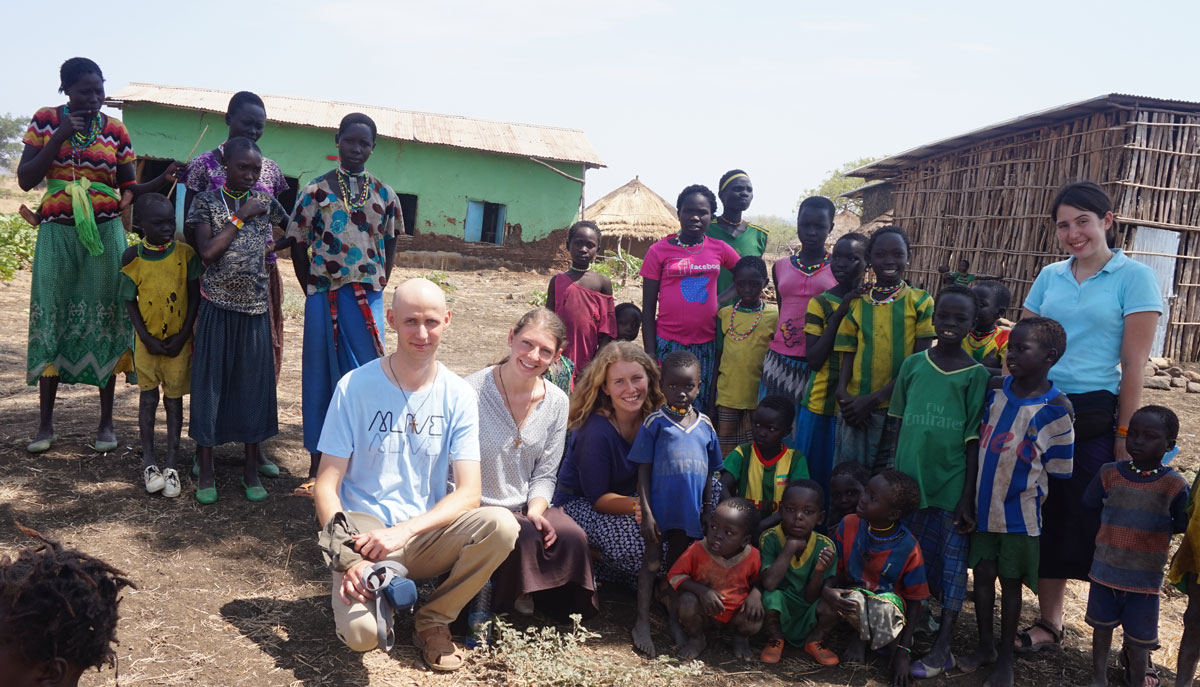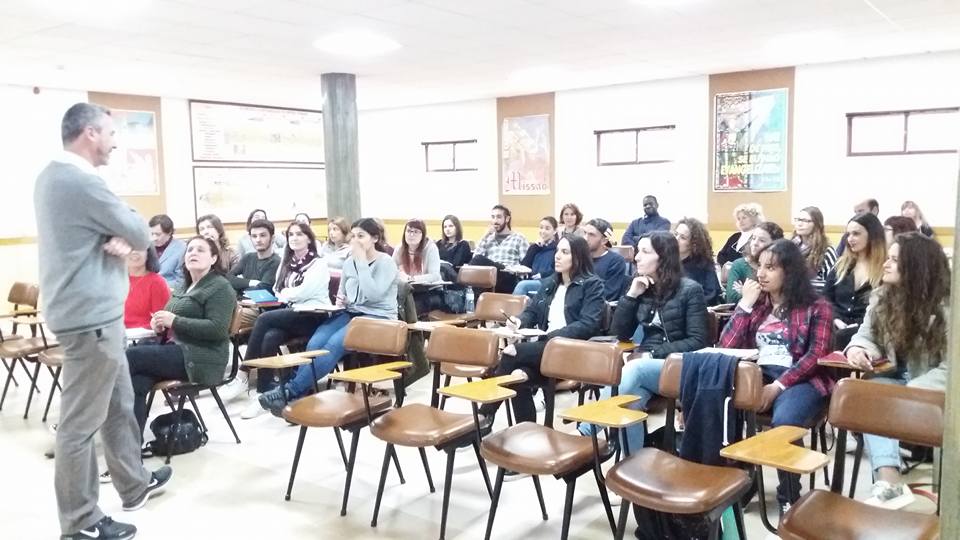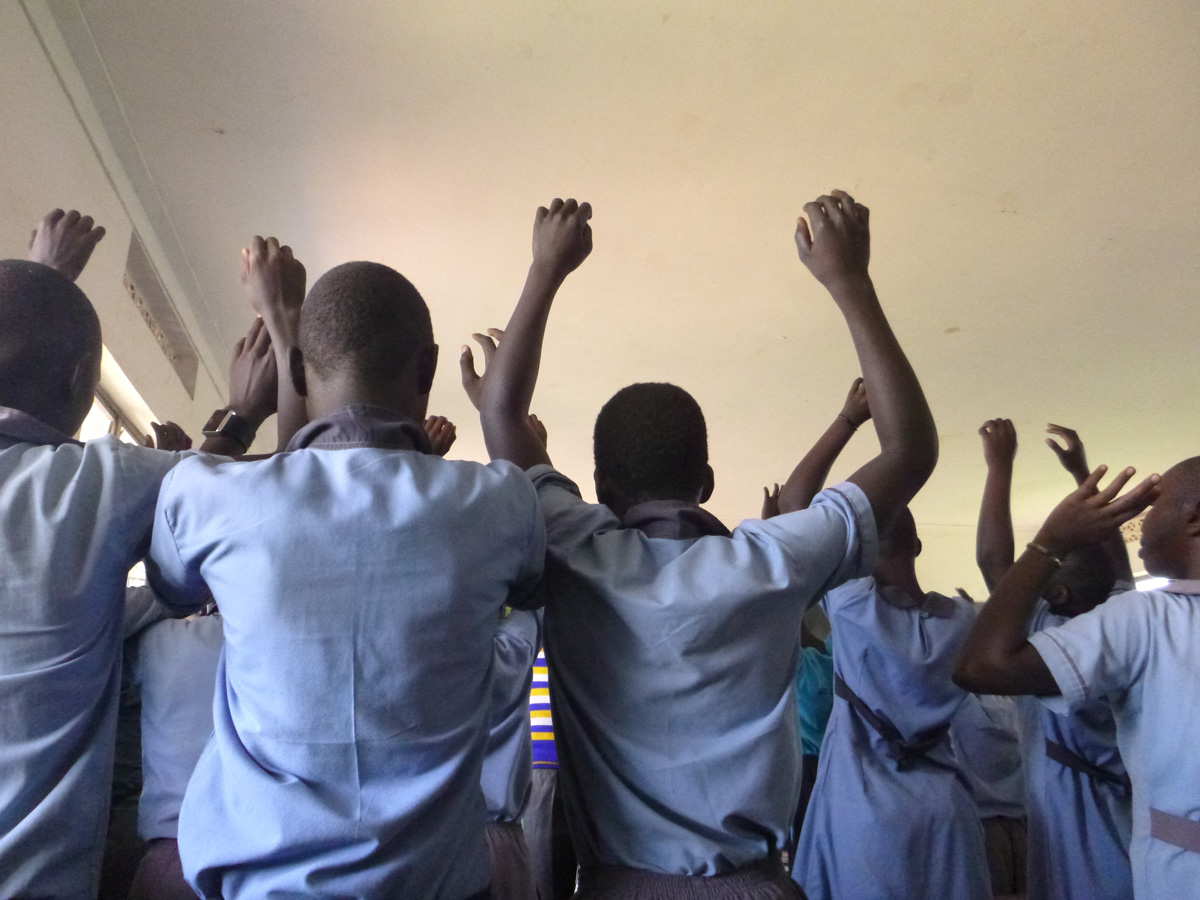 There can be no keener revelation of a society’s soul than the way in which it treats its children (Nelson Mandela). This quotation is a wakeup call for the importance we need to attach to children and the young people in the various work that we do including our own homes.
There can be no keener revelation of a society’s soul than the way in which it treats its children (Nelson Mandela). This quotation is a wakeup call for the importance we need to attach to children and the young people in the various work that we do including our own homes.
When I look through the many postings on our renowned blog, I realize that many of us work in schools, hospitals or health centres, communities where we have children and adults who are living with terminal illness so commonly; HIV/AIDS or cancer to some extent. For the purpose of this discussion, we shall limit our focus on children. We have very many partial orphans where a child is living with one parent or total orphans where both parents have died. Many of these children are under the care of relatives, good Samaritans and others live on their own no matter how old the elder (care-taker) one is. This brings challenges and many times such children end up being brought up in orphanages or some sick bays where they live with no certain future for themselves. They depend on the care givers who can give them hope and life for the future through education, medical care and all the personal needs. What I am going to share may be applicable in African setting; however, it is applicable in any part of the world where our missionary work is needed.
Many times we volunteers move to our places of assignment when we have high hopes of doing the best we can for these children but we get limited when it comes to medical needs where the medical personnel is not available at that time we need them. This can come into situations; for example, convulsions, when the child is not taking daily medications and when the health of the child is deteriorating rapidly, when the child looks depressed and out of place and among other conditions. Many of these children live with HIV/AIDS and cancer directly if they are infected and indirectly if their beloved parents or siblings are suffering from HIV/AIDS and cancer, epilepsy, sick cell disease, mental retardation, mental sickness like depression leading to drug abuse and many others.
In 1990, 18-year-old American hemophiliac named Ryan White died of an AIDS-related illness. He had been diagnosed with HIV at 11 years. At the time, AIDS was seen as a deeply stigmatized ‘gay disease’. Ryan and his family were regularly subjected to abuse and excluded from community life. Their astounding acceptance, even forgiveness of this treatment was truly humbling. This fact might have happened sometime back but it is still happening now and many children and their families are carrying this burden individually or as a family.
Many of the children get HIV infection from their parents during birth, at breastfeeding, some are infected with direct blood injection by some rude people, others get it through rape, defilement, consented sexual intercourse due to peer pressure and others leave their homes due to domestic violence and come to streets since they have never felt loved in the whole of their lives. So these children have a whole history behind them as concerns their past life and cannot be easily handled without patience and determination.
This always brings about frustration when we see our efforts seem not to yield fruits. However, this is not true as the needs of a terminal sick patient is not only on medicine but on Holistic care where a person is looked at as a whole involving physical needs which include diseases a person suffers from like malaria, tuberculosis, anaemia and many others. Psychologically, the patient is tortured at the breaking of the bad news that he/she has an illness that is not going to get cured and so feelings of uselessness, rejection come up and they no longer see meaning in life. Socially, they become isolated and see no need of being in the company of healthy people with the view that they are not worth their company as their own self esteem goes down completely. Spiritually, they see the hand of God in their sickness, for the crimes they believe they have committed or their parents committed for which God has punished them. Some see God as a distant judge for whom they are not worthy to come so close to him as he is going to send them to hell. This makes them not to fear committing crimes as they are aware that even if they do or not, God will still judge them harshly. Economically, many of them or their parents are out of formal employment or businesses and so the care for the siblings or self-become challenging and in the end others are forced to become beggars on the streets, resort to stealing, hard core criminals, prostitution and lesbianism and many more social evils committed in the society. Some of these children who stay with their parents have never experienced love in their life, are abused by their care givers or even biological parents, teachers, neighbours, strangers and become infected with HIV in the process of such abuses. Such a child will not always be interested in the environment and their school performance drops drastically and they do not perform well even if teachers give special attention to him/her.
Children and adolescents make up the bulk of population in many developing countries with its challenges of parenthood, care and up bringing faced by parents and care givers. Many times we are frustrated of not understanding why the children we care for are not behaving in a good way especially the older children. It is important to understand why some characters develop in children as they grow. My own children including those I take care of sometimes behave in ways that used to make me disappointed but the time when I came across what you are about to read, it made me to understand them.
Adolescents are people between 10 and 19 years of age and Adolescence is a phase of life that is defined differently across cultures. Other commonly used terms are “youth” or “young people,” which have slightly different definitions. It is confusing and there is no definite age mark for children and adolescents. There are very young children who will show characters of adolescents and there are adolescents who will show characters of children. So who fits where is looked at on individual basis for proper management and care.
Age range (according to WHO)
- Adolescents 10–19 years
- Youth 15–24 years
- Young People 10–24 years
Key Changes during Adolescence
In Females
- Development of breasts
- Appearance of pubic and underarm hair
- Widening of the hips
- Menarche or menstrual body changes
- Development of the vulva and pelvis
In Males
- Growth of the penis, scrotum, and testicles
- Appearance of pubic, underarm, chest and leg hair
- Night‐time ejaculation
- Morning erection
- Development of back muscles
In both females and males
- Accelerated growth and increase in body size and shape
- Increased perspiration or sweating in the body
- The presence of acne or pimples on the face
- Face has characteristics of young adult
- Change in tone of voice
- Sexual desire activated
- Initiation of sexual activities
These changes are good to know in order to start planning their care and management. In terms of body hygiene, they need to be told the importance of frequent bathing to minimize or remove body smell that makes it uncomfortable in the company of others. Girls can be prepared and given hygiene talks of body care in terms of menstruation and letting them know there are going to be times in a month when they need to take extra precaution to prepare themselves for menstruation which is very normal. There are some girls who take very long time to start menstruations and so it is very important to counsel them that it is normal and it happens and prepare them psychologically as they may be stigmatized by other girls for not being normal. For the boys, waking up in the morning with stiff erection is normal and this sometimes makes some boys think they are abnormal. Having wet dreams always excites some boys to start living what they dream of; it is then proper to counsel them that it is okay to feel that way but our life is sacred and the temple of God and has to be used well to please the Lord. They must learn to control their body emotions and not live under emotions but learn to rule the body emotions
Adolescents also experience psychosocial and emotional changes like
- Mood swings
- Insecurities, fears and doubts
- Behavioural expressions of emotion, which may include withdrawal, hostility, impulsiveness, non‐cooperation
- Self‐centeredness
- Feelings of being misunderstood and/or rejected
- Fluctuating self‐esteem
- Interest in physical changes, sex and sexuality concern about body image
- Concern about sexual identity, decision‐making and reputation
- A need to feel autonomous and independent
It’s very important to note that adolescents undergo rapid growth and development, resulting in both physical changes and changes in thinking, social skills, problem solving, and relationships.
These changes influence how adolescents interact, behave, and process information and so the major cause of some ways they behave in society and homes. Our role in this is very important to understand them and letting them know the way they behave is normal and letting them accept that it is bad to behave that way and they must try to control it and live in harmony and learn to forgive and move on with life in happiness and peace with others
Stages of Adolescent Development
Key points:
- Adolescence can be categorized into 3 overlapping developmental stages: early, middle, and late.
- The ages given are approximate; maturation is more important than specific ages.
- Maturation occurs in fits and starts.
- Growth in each category of change can occur at different
- HIV impacts maturation in many ways.
No Longer Children, not yet Adults
distinguishing characteristics of adolescents may include:
- Energetic, open, spontaneous, inquisitive
- Unreliable and/or irresponsible
- Moody
- Desire independence
- Influenced by friends
- Less influenced by family
- Looking for role models (often outside the family)
- Embarrassed to talk to adults about personal issues
- Desire to be different from parents and previous generation in general
These characteristics are generalizations — they are not all applicable to every adolescent client. This clearly points out why our children often find it difficult to open to us and why we need to build more trust with them so that they can easily open to us and approach us in case of any problem. This is an inborn thing but the trust we build will make it possible for them to open to us. This generational gap is the cause of agony in families and bringing the child to the Priest to be prayed for is not a solution enough but it has to do with the culture of the family and upbringing.
How Adolescents Differ from One Another
Adolescents are a heterogeneous group and may differ from one another in many ways, meaning they have different characters and personalities in one person or more in a group. This is brought about by;
- Stage of development
- Gender
- Sexual orientation
- Home or family situation
- Educational level
- Financial situation
- Geographic location
- Relationship or marital
- Status of health or social status
- Experience with stigmaand discrimination
Counselling and education should meet the unique needs of each adolescent and each child in front of you is a representation of the past life experiences that are either good or bad. The way this child will behave in front of you will depend on your reception of the child which can either make the child to like you or hate you. Here, we always need to apply the golden rule, do to others what you would expect them to do to you. Ask if you were in that situation yourself, how you would love to be treated, and then apply your own expectation to that situation to the person in front of you.
All that said applies to all children whether sick or not sick. Now when it comes to a child with terminal sickness, it becomes worse than what a child without terminal illness would go through. This normally brings a lot of stigma and discrimination to all of them from the child to the care givers who are equally affected positively or negatively with the reaction of a child with terminal illness.
Who are the Children infected by HIV/AIDS
- Are neglected in the society
- Ever abused
- Some sexually abused by even their biological parents
- Some have deep wounds of HIV infections they struggle to live within their hearts
- Have lots of fear especially those without care takers
- Never being listened to
- Ever have broken love relationships
- Not given time and chance to play with children
- Segregated in some families
- Forced into early marriages and sex for survival
- Never get rights to school, health care, free association, food and shelter
- Have no proper knowledge of their disease and medicines given at every clinic visit
- Have lot of stigma and discrimination from the family and society
- Lack proper feeding versus taking medications
- Take drugs every day
- Easily attacked by diseases
- Have too long waiting hours in the clinic visits
- Never given attention in schools
- Suffer from dilemma in relationships and disclosure challenges
- Is difficult for parents, care takers and health workers to talk about their disease
- Have dilemma of their sexuality
- Dilemma with relationships
- Have nicknames given to them like malaria, moving skeleton, moving dead body…
Such instances make them live very unbearable lives, live in denial, and blame their parents to have infected them or blame themselves for their past reckless life that has made them to be infected with HIV. If you properly understand all this, it will be very easy to have a personal rapport with the child and learn what hurts him/her much in order to find a way out of what he/she is going through.
Common Psychosocial Issues
Psychological distress at illness and at the prospect of death is so stressing to the child being exposed to high risk of being orphaned leading to;
- Lack of parental nurturing
- Lack of basic needs
- Loss of inheritance
- Need to work
- Less education and skills leading to social isolation
- Stigma of living with HIV/AIDS
- Effects of the physical condition of the body (e.g. chronic coughs, disfiguring skin conditions, body parts eaten up by HIV/AIDS)
In the end, this makes it very difficult for these children to believe that someone else can ever believe in them and accept them for all that they are going through in life. This is where our witness to Christ in the skin of the sick child starts from. St Mother Teresa of Calcuta showed us that it is not the profession but the heart for a sick person whom she said is Jesus in disguise that matters. These patients only need someone to talk to them and feel loved and accepted in the way they are matters to them the most. Sometimes we think we need to take something to eat and drink to the sick in the hospital, homes, but sometimes they have no appetite for food or drink but want to feel someone very near and close to them to listen to and hold their hand and pray together with them.
When we meet them and start talking to them in schools, orphanages and other areas, we may think they are all from great families and homes but the opposite is very true.
Who do some of these children live with?
- Relatives
- Parents/single parents
- Guardians
- Strangers
- Child headed families
- Live in streets
- Mobile
The person they stay with will either make them to adhere well to medications or not. Some of them move from one place to another which affects their follow up on care and treatment and this brings about poor treatment outcomes. Some of them who find strangers to stay with end up being abused sexually or even killed for ritual reasons.
As we look at the places and people they stay with, it becomes clearly important to know their own feelings of living with HIV and Cancer. When we know their expectations, it becomes easy to help them in all that they are going through like their feelings concerning their HIV/AIDS and cancer disease which they live with;
- Some feel it’s a curse from God for being with HIV/AIDS or cancer for their sins or the sins of their parents
- They feel useless, lonely and deserted and feel the world has collapsed on them and life no longer holds meaning for them
- Some get scared of marrying or fear someone will never accept to marry them with their HIV/AIDS and cancer and so no hope of getting any future partner
- Some blame themselves for not listening to what their own parents were telling them not to indulge in living reckless life
- Others regret why they were ever born and see how they will live with such life. We need to appreciate that it is very normal to feel and express such feelings and if they are talked to, a person who can listen to them and understand them can lead to healing of hurting memories
- Some are so frustrated at their own parents for infecting them with HIV
- Others conclude that they will not die alone and so will also infect as many others as they can after all someone also gave them the HIV virus
- Others report lose in self-esteem and so cannot express themselves in front of others as they feel unworthy of recognition
- Some feel rejected and useless how life will go on with no meaning to them as their future dreams are shuttered
- Others cannot take the fact that letting someone so close to them know that they are HIV positive is possible as they will be stigmatized everywhere they go and fear such people will tell others about their HIV positive status
- Knowing that they have HIV/AIDS makes them short tempered and easily involved in numerous fights when provoked and others do not have friends or cannot even maintain one if they make any in their life as they do not trust anyone.
Therefore, we need to encourage them so much that knowing and acknowledging their negative feelings is the best way to get healing in life. This will make them to recognize and manage their negative feelings to live a healthy life. This will also help them to overcome the misconceptions from the society about baseless judgment about them;
Some misconceptions we commonly meet in our care and treatment include;
- Denial that one has sexual rights and feelings and so they let themselves live a life of opinions of others about themselves
- Being haunted of the past life whether of their own making or being influenced by the friends to live a nasty past life
- Looking at themselves as a living corpse with countable days, seeing no meaning in life and living anymore and so there is no need to take medicines and follow up anything suggested for positive living. Therefore, there is no need to go to school and get education just to die at the end of it all
- They feel they are the worst sinners in the world as they are always blamed by pastors and even some Catholic priests for living a bad life and blaming them for spreading HIV to others when actually some of them really do not live that kind of life. This makes them not to turn to anyone else apart from themselves and that is why many of them end up killing themselves
- They feel ugly and out-casted. This is made worse when some parents and care takers refuse disclosing HIV positive status to some children thinking the children will feel bad and yet the children already might have known they are HIV positive and keep on lying to them that they are taking medicines for Syphylis or Pnuemonia… This brings a lot of anxiety and stress. Some families make it worse by claiming better care to the sick child and others get less care and attention, thereby bringing about sibling rivalry that brings too much stigma to the sick child when others come to know that so and so is HIV positive or has cancer.
Despite all the negative thoughts that move through their mind, the children still have what they expect when they come across someone who has come in the way to give them hope and courage. They will confide in you if you try your best to understand them and fit in their shoes
Expectations of teenagers and adolescents
- Understanding
- Guidance/encouragement
- Legal support
- Respect
- Holistic care and support
- They expect unconditional love from whoever comes in touch with them; a person who will not judge them for what they are and what they carry in their bodies
- They need someone who can listen to them, give them full attention so that they share what bothers them that they have never spoken to anyone. So, if you give your time to such a child and take him/her away from the rest and just encourage them to talk, this will bring a lot of healing to such a child but expect a lot of crying from both of you as their stories are emotionally draining
- They need someone who can understand them and give them solutions or talk to them to find a solution for the problems they go through
- These children need physical touch especially handshake that makes them feel loved and appreciated. Even in our own life when we get a handshake, we feel happy and loved and that is the same situation they are in despite their skin that sometimes has sores all over, a pat at the back makes them feel happy.
- With the terminal illness, they have their dream of having a family and producing their own children, feeling loved by a partner, being referred to as having a home but not a house. With their condition, they feel this is something that cannot be achieved any more
- They need somebody to be patient with them as their condition may not make them to be reasoning fast and an environment that is calm is good for them. They therefore need someone who can encourage them in all that they do as they never get such encouragement from their past life
- In some situations, some people treat them differently either very good or very badly making others to be suspicious why so and so is treated so differently
Therefore, these needs and many more others these children have can make us to know where we can be of help to them in our daily work with them. When a child is always crying, isolated, depressed, committing crimes, getting addicted to drugs including alcohol, it is an indication of underlying behavioral or psychosocial problem going on in the life of this child. It would therefore be helpful if we identify such children and give special attention to them out of such problem. Winning the confidence of these children takes time and effort and when you have won their confidence, it’s worth the effort.
The first reaction you show to a child is enough to bring to their memory all that they have gone through in the past. Sometimes what we are reminds these children about their past. An example could be if you dress untidily and move about with uncombed hair, it could make them to remember the same man who looks like you that raped them. Likewise, over shouting reminds them of the stepmother, father who used to abuse and beat them at home and this will drive them into their world totally withdrawn from you and the rest. In a catechism lesson, God is our loving Father and so we must love him… a child put up his hand and said, if this God you tell us is our Father, I rather do without him, he is just like my father who beats me all the time… and he just moved out of the lesson. So, our outward appearance tells a lot about us to others in their own perceptions and this will affect the way we interact with them.
Always pay special attention to a child who is always isolated, not interested in what others do and has very flat moods. This shows lack of love from the family or environment they come from. This can be the behaviour of children both HIV positive and HIV negative. We shall talk more about the HIV positive children who sometimes are also found to be suffering from cancer.
Let us focus our attention now on the HIV/AIDS and Cancer patients:
They have the following expectations to be an ideal person. All these feelings affect the adherence of these children to medications and encouraging them to get hold of their negative feelings and knowing that such feelings are very normal brings about positive changes in their positive living process. Encouraging them to treat themselves physically, treating their mind, treating their body and soul is the way forward. Someone with full anger needs therapy from all the holistic angles. Encouraging the child to get a note book or exercise book to write down all that annoys him/her every time and going over that list with someone paying attention to them is very helpful in finding out what bothers them so much. Accepting HIV positive status is not very easy and it takes time and effort.
In a study done in Uganda about the adolescents, A. Barbara et al (2014), found out that about 130,000 adolescents (10-19 years) are living with HIV/AIDS with limited services among adolescents in Uganda. The study carried out between January to March 2013 with quarterly facility records found out that the 122,510 of the adolescents were counseled, 119,426 (97%) accepted to be tested. 2,937 (2.5%) of them tested HIV positive and 87% of the positives enrolled into care. Only 12,695 (29%) of the 43,333 eligible adolescents living with HIV in Uganda are on antiretroviral drugs way below 80% of the country’s target. This is only a very small representation of the problem faced by the adolescents world over.
This shows our need to look at them in a way that can help them to live a better life with HIV/AIDS.
For those who are on medicines for HIV/AIDS, we need to monitor that they take them well, the right medicine, right dose, right time, right route and right child in case they are many in care. Being in touch with the health workers where the children get care and treatment is good to find out the instructions for each child to be followed well at home/care centres.
What matters most to these children?
- To be listened to
- Care
- Equal treatment with others
- Education
- Having their own families/marriage
- Shelter/accommodation
- Appreciation for anything that they can do
Help them to identify life skills and career opportunities. This includes activities that they can do to earn a living from, like farm work, handcrafts, good behaviour and prevention of physical harms, moral uprightness and many others you can positively identify in them to learn or improve.
Giving time and concern to children is what matters most to them. Providing basic needs for living is good but the children feel loved and appreciated if someone gives them quality time to play and tell stories and listen to them as they express their inner most feelings.
What they think about sex
They think sex is;
- Exercise
- Enjoyable activity
- Game
- Procreation- for producing children
- Act to strengthen relationship
- Passing time
- Satisfy natural demands
- Source of entertainment
- So natural demand
- Gift from God
- Something to prove manhood
- Usual thing
- Practical
- Source of income-employment
- Medicine for pimples
- Exercise to lose weight
- Personal feeling
When we look at what the children discuss about sex, it is amazing to understand why they move uncontrollably with immoral life. No wonder many girls get raped by boys and men who have such above thoughts, thinking you need sex when you are stressed, have pimples on your face, wanting to lose weight. Our help and guidance to the children is very important in the world of today which is so challenging. Putting these young people in focus group discussions to understand what they think locally in their surrounding concerning the above issues will make you get real spot on solutions for them. Many children find comfort in their peers which makes them to get into troubles and diseases including sexually transmitted infections and HIV/AIDS and so wherever we are, we must be an eye opener to them to guide them through the turbulent storms of life.
Risk‐Taking as a normal Part of growing up
Adolescents take risks as a normal part of growing up and this involves them getting into risky adventures. Risk-taking is the tool adolescents use to define and develop their identity. Healthy risk‐taking is a valuable experience as they are always adventuring in all that you do.
Healthy risk‐taking includes participating in sports, developing artistic and creative abilities, travelling, making new friends and contributing constructively to one’s family or community.
On the other hand, curiosity, sexual maturity, a natural inclination towards experimentation, and peer pressure, can lead to unhealthy/negative risk‐taking. This includes:
- Drinking, smoking, using drugs
- Driving recklessly
- Unsafe sexual activity
- Self‐mutilation
- Running away
- Stealing
- A sense of powerfulness, feelings of invulnerability, and impulsiveness can lead to a lack of future planning.
- Risk‐taking can be caused by a lack of knowledge.
- In some cultures, young men are encouraged to take risks as a way of proving their masculinity.
This calls us to be vigilant in all that we interact and see with the adolescents as we interact with them on day to day basis. Where we see they are going off tract, it is helpful to come in as a counsellor and move forward with a solution.
Types and Consequences of Unhealthy Risk‐Taking Behavior
Unhealthy risk‐taking can result in:
- Poor adherence to ARVs or HIV care and treatment
- Unprotected sex
- Experimentation with alcohol, marijuana, etc. Can interfere with judgment and adherence
- Can suppress the immune system; can make a person more vulnerable to diseases, can compromise body’s response to ART
- Can adversely interact with HIV medications, causing illness
- Can reduce inhibitions and affect decision‐making
In a Botswana study, heavy drinking was associated with unsafe sex, sex with multiple partners, paying for sex, and intergenerational sex. Much as this study was done in Botswana, it is a common problem in many developing countries that needs to be tacked well. Some of these vulnerabilities include but not limited to the following;
Physical Vulnerabilities
- Young people, particularly young women, are more vulnerable to STIs than adults.
- The cells lining the inside of the normal adolescent cervical canal are more vulnerable to infections than the cells that line the mature cervical canal of adults.
- All people living with HIV/AIDS including children are particularly vulnerable to nutritional and caloric deficiencies, due to the increased energy demands HIV imposes on the body.
- HIV can contribute to compromised physical and psychological development, including stunting and slower than normal growth
Social, Psychological, and Emotional Vulnerabilities
- Psychological factors that put many adolescents at increased risk of physical harm including a general sense of invulnerability, the desire to try new things, and a willingness to take risks.
- Adolescents’ family situations may offer little social and material/financial support.
- Mental health problems can increase during adolescence.
- Adolescents often lack maturity, assertiveness and good communication skills, difficulty making good decisions, articulating needs and withstanding peer pressure
- There are often unequal power dynamics between adolescents and adults; adolescents are more vulnerable to abuse.
Socioeconomic Vulnerabilities
- The need for money often increases during adolescence as they always compare themselves with those who have and will do anything they can to get money. We need to watch these activities from our children we care for
- Lack of access to money or employment can lead adolescents to steal or take work in hazardous situations.
- Economic hardship can increase health risks in which basic needs of life may not be accessed.
- Adolescents are more likely to experiment with drugs and alcohol, and disadvantaged adolescents are at greater risk of substance abuse.
- Young women are particularly vulnerable as they can be turned into prostitution with too much sexual abuse
- They often face gender discrimination that affects food allocation, access to health care, adherence to care, the ability to negotiate safer sex, and opportunities for social and economic wellbeing.
- Some marry very young to escape poverty with the hope that marriage will help solve their problems but end up into more problems of early teenage pregnancies with very high mortality rates
- Many adolescents are at risk due to other socioeconomic and political reasons where they can be deceived for sex slavery, cheap child labour and being recruited into child soldiers which is so common in our African settings
Some common challenges faced by parents and caregivers of these children
We also meet regularly with the parents and guardians and care takers of these HIV positive children on treatment and the some of the challenges they face include;
- They are always very busy and have no time to monitor these children on how they take their medications and their feeding at home is left to domestic care takers in which it is not done well some of who do not know why such medicines are given to the children
- Time factor when a child is given twice in a day pill and they may manage to give morning pills but evening pills are either not given or given very late and this affects the treatment outcome of the child negatively
- Some of these children are mobile moving from one relative to another thereby affecting their routine medication taking
- Some of the children have very poor appetite that affects their medicine interaction in the body leading not eating the available food the family can afford
- Some children are not explained to why they take these daily medicines which makes them to refuse taking medications as they do not know they take them
It is very important to understand these few and many other reasons why some of the children get problem with their medications so that you can personally understand and come to help the family cope with the burden of caring for their children. The best approach is holistic in which different people can be brought on board to tackle some of the identified problem for the good health of the affected child.
How to communicate with the children
Communication should specifically address the concerns, fears and questions of the child. Children should not be forced to tell their story.
- If a child cannot communicate verbally about something, there will be good reasons why that is the case including:
- Tradition and cultures: In African tradition, children are ‘seen but not heard’.
- Children in African cultures are not allowed to disagree with adults. They are brought up and always instructed to be quiet and humble and never to talk when adults are talking.
- Children feel embarrassed to discuss HIV/AIDS with adults because it relates to taboo subjects such as sex.
- Children might fear hurting adults. They might fear and hide their feelings in order to protect their parents, particularly if parents or guardians are unhappy.
Effective Communication with Children
- Insist on child-focused, not parent-focused, sessions.
- Talk with the child, rather than to or about him/her.
- Handle the likely reactions and questions during the process of consultation/counselling.
- Assure confidentiality or be honest beforehand about anyone who will be told what the child confides in.
- Be approachable.
- Avoid a commanding tone or judgmental attitude (prejudice).
- Avoid imposing adult values on children.
- Avoid comparing the behaviour of children under stress to other children.
- Don’t make empty promises and follow up what you promised.
Characteristics of Youth-Friendly Services
In order to serve adolescent clients with HIV prevention, care, treatment, and support, and related health services,
All environments for interacting with children must be able to attract, meet the needs of and give confidence to these children.
- Specially trained/oriented staff about child care no matter what they do in the facility or place where the children stay
- All staff display respect for youth regardless of what they are and what health conditions they are in
- All staff should maintain privacy and confidentiality to the highest degree and get rid of people who cannot keep confidentiality
- Enough time for interaction with the child especially when they have accepted to open up to you
- Special times when young people can receive services or seeing children with special needs
- Convenient hours for seeing them
- Convenient location away from the rest
- Adequate space and privacy
- Comfortable, youth‐friendly surroundings
- Peer Educators available to talk to the children and share their own experiences to the children as testimony from someone like them is more powerful than a spoken or researched material
What can we do as we move on with them in such emotional journey of care and support?
- Let us focus on their concerns and develop very good rapport to know more of what hurts them most and what they always feel sharing with someone so caring to them
- We need to empower them in accepting their own status and know that having HIV/AIDS does not mean end of life dreams and what they can do with what they are going through
- Find out if it is possible to develop treatment partnerships with the different significant people in the life of the child may be at home, in the caring centre. This therefore calls to form a team with different people who can handle different aspects of the needs of the child physically, psychosocial, economical and spiritual
- Endevour to follow up all the programs you propose to implement or plan to do
- Some children who have recovered from your efforts can be empowered with basic knowledge and skills to start following other children (peer model of care) and they always believe a lot in the testimony of their own peers who has recovered from a similar situation they are going through and putting them in focus group discussions to share and advise each other is very helpful in the long run to overcome stigma and discrimination. This will also bring full community involvement in the care of these children and sustainability of such programs in case you move away to another place of assignment as a missionary
- Teachers and matrons, wardens all need to be assessed to rule out stigma and discrimination which easily comes from them due to failure to control emotions, or ignorance and working with the teachers, matrons, school nurses, care takers in orphanages is paramount in making life comfortable for these children to cope with their status of livelihood.
- We encourage equal treatment for all work they are supposed to do unless if medical advice demands the children to be kept away from doing some work like in cases of asthma or allergy to the child, chest problems which can all affect the wellbeing of such a child. This will stop the feeling of loneliness and isolation which they feel most of the time. This also can let them open up to their friends who prove to be understanding so that they can easily help them to cope with treatment and care procedures to remind them of their next appointment taking their daily pills
- Allocating them to lead some groups doing activities improves their self esteem
- Be open to them and encourage them not to fear you and encouraging them to join in playing football, netball, or any activity they can do. Please be cautious in getting into close contact in case of bleeding and exchange of body fluids which can infect you with HIV or hepatitis virus. Much as we care, let us also be careful as prevention is better than cure
- Encourage them to tell you anything that happens to them anytime, anywhere like rape as soon as it happens
- Never blame them for anything that happens to them currently or part of their past but instead support them in any way you can. Having a positive care attitude to a sick child has a very huge impact on their recovery from sickness and wellbeing.
- Encourage them to change themselves but not their friends because at the end, it is their own life not of someone else
- In teenage and adolescent care, take them as they are, understand them, be in their shoes, be their best friend, remove care shoes, come down to their level even if it means sitting down on the floor with them, that would be very beautiful. Reassure them on what they are going through, sit down and cry with them, laugh with them, cheer with them, eat with them
Life skills training on choice and self-esteem
As put clearly we need to empower adolescents on how to make choices and how they can have self-esteem which has already been eroded by negative public opinion. This is a very creative, educative and interactive session for the adolescents where they are given opportunities to share their understanding of the concepts of both choices and self-esteem in their life. It makes to challenge them on what they can do when alone, in the group of friends, family and what they can do when they are faced with challenging situation of fight or flight, or making a life and death choices they face.
Reasons why adolescents, like any other person, need to have life skills
- Make good decisions
- Set goals
- Understand themselves selves
- Develop better relations with others
- Solve day to day programs daily problems including money, relationship, personal management and hygiene, jobs and career development and many others
- To develop communication skills so as to be well understood
- Anger management
- Conflict management
- To attend school regularly
- To keep good hygiene at all times both the environment and the personal hygiene and to be very smart in dressing and body
- Respect for every person and property
- To pray every day
- To avoid using abusive language at all times
- Empathy
- Self control and self understanding programs
- Time keeping
- Behaviour with adults, elders, opposite sex, drinking
Channels of acquiring life skills
- Person to person interaction
- Education in forms of seminars, workshops, prayer groups and many others
- Experience sharing
- And other Social interactions
In summary
Adolescents need to be handled separately well since they are going through a rapid change of behaviour, identity disturbances and strong emotions which are always confusing to the society. In order to build their confidence, there is need to associate more with their peers since they are the ones they trust. Interaction with the service providers and parents are very essential since adolescents are often vulnerable to negative peer pressure.
Taking care of the adolescents need a multi disciplinary team of different professionals who bring their different backgrounds for the good of the young people and inter-linking with other organizations for services you cannot give is very essential.
The author, Eric Ezati, works with Reach Out Mbuya Parish HIV/AIDS Initiative in Mbuya Parish Kampala, Uganda




